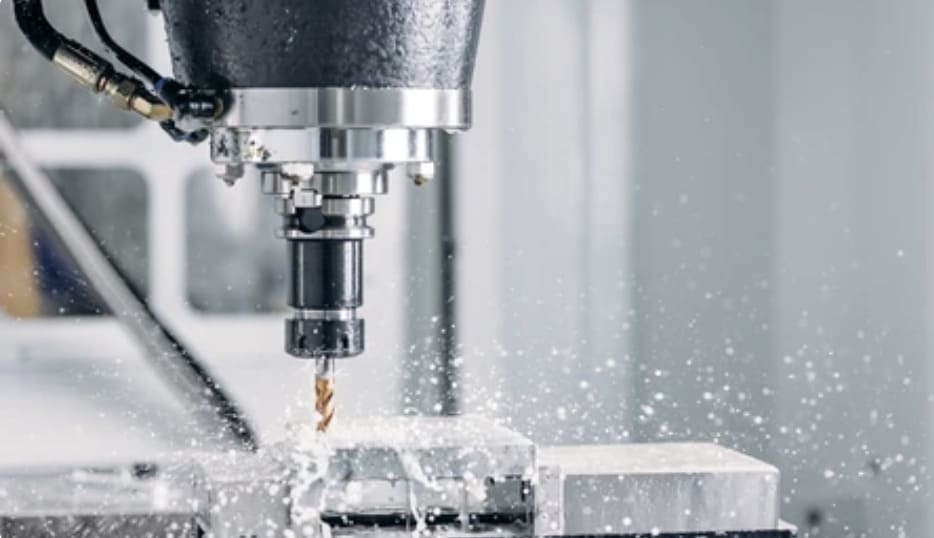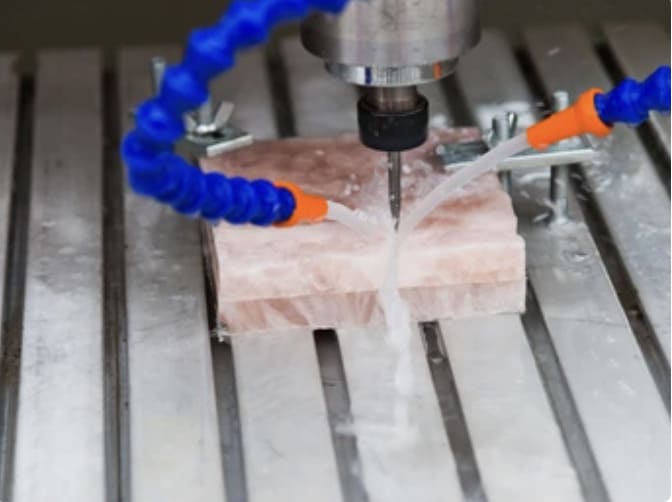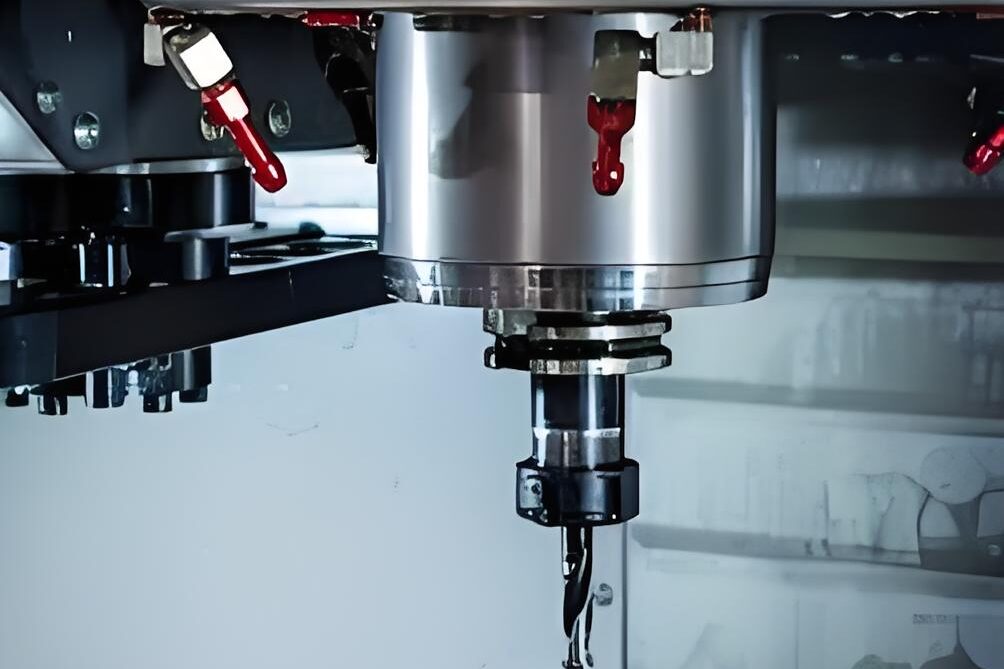Introduction
In the realm of CNC (Computer Numerical Control) machining, the debate surrounding the integration of Hall sensors in brushless CNC spindles is a hot topic. This article explores the reasons why some CNC spindles come equipped with Hall sensors while others do not. We’ll delve into the advantages of these sensors, their impact on performance and cost, and the future trends in CNC spindle technology. Whether you’re a machinist, an engineer, or a technology enthusiast, understanding these elements will help you make informed decisions about CNC spindles.

The Role of CNC Spindles in Modern Manufacturing
CNC spindles are central to the operation of CNC machines, driving the cutting tools that perform precision tasks in various manufacturing processes. They convert rotational motion into the cutting power required for machining tasks. Without a reliable spindle, a CNC machine would struggle to maintain the accuracy and efficiency necessary for high-quality output.
CNC spindles come in various configurations, including those designed for high-speed machining and those intended for heavy-duty applications. The choice of spindle affects the overall performance and quality of the machining process. A well-designed spindle can enhance the precision of cuts, the smoothness of finishes, and the overall efficiency of the machining operation.
Types of CNC Spindles: Brushless vs. Brushed
Understanding the difference between brushless and brushed CNC spindles is crucial for selecting the right spindle for your needs.
Brushless CNC spindles use electronic controllers to manage motor functions, providing several advantages over brushed models. These spindles are known for their durability and reliability. They do not have physical brushes that can wear out, which reduces maintenance needs and increases the lifespan of the spindle.
In contrast, brushed CNC spindles rely on physical brushes to conduct electrical currents within the motor. While they are generally less expensive and simpler to design, they have a shorter lifespan due to brush wear and may require more frequent maintenance. For many applications, particularly those requiring high precision, brushless CNC spindles are preferred due to their enhanced performance and longevity.
What Are Hall Sensors?
Hall sensors are critical components in many CNC spindles, especially in brushless designs. These sensors use magnetic fields to detect the position and speed of the spindle motor. By providing real-time feedback, Hall sensors allow for precise control over the spindle’s operation, which is crucial for maintaining high levels of accuracy and performance in machining tasks.
In a brushless CNC spindle, Hall sensors are used to monitor the motor’s position and rotational speed. This feedback is essential for the electronic control systems to make necessary adjustments, ensuring smooth and accurate operation. Without Hall sensors, controlling the spindle’s speed and position becomes more challenging, potentially impacting the quality of the final product.
How Hall Sensors Enhance Spindle Performance
Improved Accuracy and Precision
One of the significant benefits of integrating Hall sensors into CNC spindles is the improved accuracy and precision they offer. Hall sensors provide continuous feedback on the spindle’s rotational speed and position, allowing the CNC controller to make real-time adjustments. This results in more precise machining, which is essential for tasks that demand high levels of detail and consistency.
For example, in the production of intricate components such as aerospace parts or medical devices, even the smallest deviation in spindle performance can lead to significant errors. Hall sensors help mitigate these risks by ensuring that the spindle operates within the required parameters.
Enhanced Speed Control
Another advantage of Hall sensors is their contribution to enhanced speed control. Accurate speed regulation is crucial for many machining processes, where varying speeds are required to achieve optimal results. Hall sensors provide precise data on the spindle’s speed, allowing for better control and adjustment of rotational velocity. This capability is particularly beneficial in operations that involve different materials or complex geometries.
For instance, when machining hard materials like titanium, maintaining a consistent speed is crucial for achieving a smooth surface finish. Hall sensors enable CNC spindles to maintain the desired speed, improving the overall quality of the machining process.
Extended Spindle Lifespan
Extended spindle lifespan is another benefit associated with Hall sensors. By providing real-time feedback and enabling precise control, Hall sensors help reduce wear and tear on the spindle components. This leads to a longer operational life and reduces the frequency of maintenance and replacements.
In a high-production environment, where spindles are used extensively, the durability provided by Hall sensors can result in significant cost savings. Fewer breakdowns and maintenance requirements contribute to a more efficient and cost-effective manufacturing process.
Cost Considerations
Incorporating Hall sensors into CNC spindles does come with a higher upfront cost. However, the benefits they provide, such as increased accuracy, improved speed control, and extended spindle lifespan, can offset these initial expenses.
When evaluating the cost of a CNC spindle with Hall sensors, it is essential to consider the long-term advantages. While the initial investment may be higher, the improved performance and reduced maintenance costs can lead to overall savings. For many businesses, the long-term benefits outweigh the initial cost, making Hall sensors a valuable investment.
Applications With Less Precision Requirements
Not all applications require the high precision and performance benefits provided by Hall sensors. For tasks where less precision is needed, a CNC spindle without Hall sensors might be sufficient. These applications may include basic machining tasks or operations where high-speed and extreme accuracy are not critical.
In such cases, opting for a more cost-effective spindle without Hall sensors can be a practical choice. However, it’s important to assess the specific requirements of each application to ensure that the chosen spindle meets the necessary performance standards.
Alternatives to Hall Sensors in CNC Technology
Several alternatives to Hall sensors exist in the CNC technology landscape. These alternatives include encoders, resolvers, and other feedback devices that can provide varying levels of accuracy and performance. Each technology has its advantages and limitations, and the choice depends on the specific needs of the application.
For example, optical encoders are another feedback device used in CNC spindles. They provide high-resolution data on spindle position and speed, similar to Hall sensors. However, they may have different operational characteristics and cost implications. Exploring these alternatives can help you find a solution that best fits your machining needs.
Trends and Forecasts in CNC Spindle Technology
Trends and forecasts in CNC spindle technology suggest a growing adoption of advanced feedback mechanisms, including Hall sensors. As manufacturing processes become increasingly complex and precision-oriented, the demand for high-performance spindles is expected to rise. Hall sensors are likely to become a standard feature in many CNC spindles, driven by the need for greater accuracy and control.
Emerging technologies, such as smart sensors and advanced control systems, are also expected to influence the future of CNC spindles. These innovations will continue to shape the capabilities and performance of spindles, contributing to the advancement of CNC machining technology.
How Hall Sensors Are Shaping the Future of CNC Spindles
Hall sensors are playing a pivotal role in shaping the future of CNC spindles. Their ability to provide precise feedback and enhance spindle performance aligns with the increasing demands for high-quality and efficient manufacturing processes. As industries continue to seek improvements in precision and control, Hall sensors will likely become a standard component in CNC spindles.
The integration of Hall sensors is driving innovation in spindle technology, leading to more advanced and capable CNC machines. As the technology evolves, we can expect further advancements that will continue to improve the performance and reliability of CNC spindles.

Comparing Performance: Spindles With vs. Without Hall Sensors
When comparing performance between spindles with and without Hall sensors, the differences are significant. Spindles equipped with Hall sensors generally offer superior accuracy, better speed control, and extended lifespans. These advantages make them suitable for high-precision applications and demanding machining tasks.
In contrast, spindles without Hall sensors may be more affordable but may not provide the same level of performance or durability. For applications where precision and control are critical, investing in a spindle with Hall sensors is often the best choice.
Summary of Key Points
- Hall sensors provide real-time feedback, enhancing spindle accuracy and performance.
- Brushless CNC spindles with Hall sensors offer improved control and longer lifespans.
- Higher initial costs of spindles with Hall sensors may be balanced by long-term benefits.
- Alternatives and trends in CNC technology are evolving, influencing spindle capabilities.
Understanding the role and impact of Hall sensors in CNC spindles can help you make more informed decisions about your machining equipment. As CNC technology continues to advance, staying updated on these components will ensure you achieve the best results in your manufacturing processes.

- RicoCNC has a team of professionals who have been engaged in the design, production, sales, and maintenance of electro spindles for many years. Our company accepts the purchase of various types of CNC spindles.
water-cooled CNC spindle motors
Edge banding machine spindle motors.
- If you need any CNC spindle, please contact us.

